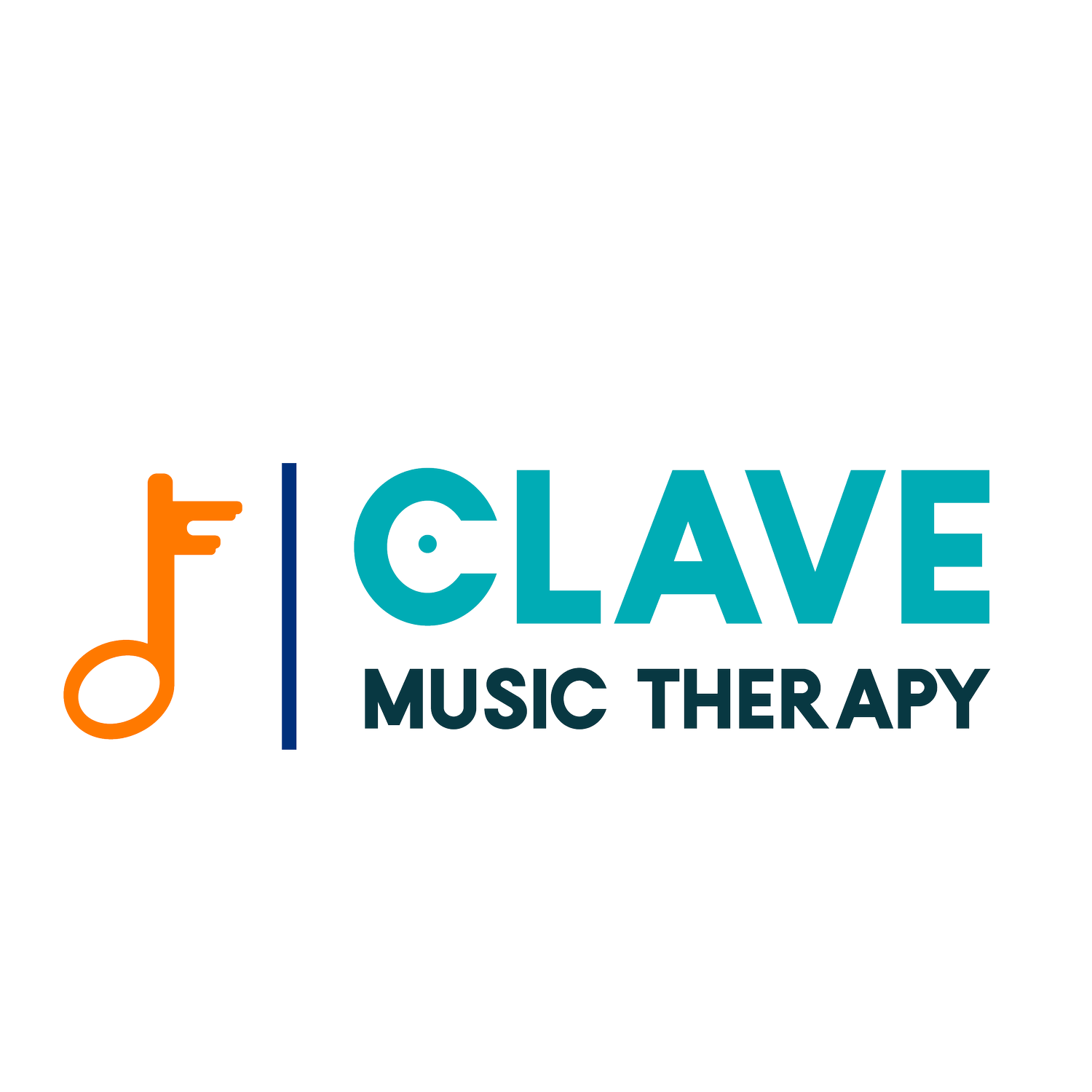
Frequently Asked Questions
What is music therapy?
The big fancy clinical definition is “the clinical and evidence-based use of music interventions to accomplish individualized goals within a therapeutic relationship,” according to the American Music Therapy Association. The definition that I like to give is
“a relationship between the therapist, the client, and the music to promote wellness.” That wellness part can look like improving self-esteem, building self-confidence, learning emotional regulation with music, relieving stress, and a whole host of other goals. At the core of wellness is that it’s something that we decide together that you want to be better than whatever it is right now.
Why music therapy instead of talk therapy?
Music is often one of the first things we hear and connect with. As babies, we may have been rocked to lullabies and swayed hearing the music our parents listened to. It is often something we connect to before we learn to speak. Why does this matter? It is one of the earliest things that you have felt in your body your entire life. Music can be a language where it feels like you might not have the words to describe what you’re feeling. It can be a deep and strong sensation in your body that helps you have experiences before you can put them in words. If you’ve felt in the past like talk therapy hasn’t reached as deeply, consider giving music therapy a try!
How does music therapy help with confidence?
Music can help us embody something that we don’t feel like we have yet. When Ivy Queen says that she is la reina, la diva, la caballota, we know she means it and when we can sing that in one of her songs, we can borrow that feeling for a little while. When you get to make up music on the spot, there is no “it sounds bad” because it’s all made up! These are just a few ways that music can help you find self-confidence.
Do I need to know how to play an instrument to be in music therapy?
Definitely not! The extent of your music career could have ended with putting down your recorder in elementary school and it wouldn’t matter. You can also absolutely be someone who has dabbled in learning an instrument or has always been a great singer. Because music is accessible for so many people, you do not have to play an instrument to be in music therapy. My only recommendation is that you at least like music enough to want to try it as therapy.
What happens in a music therapy session?
Once we’ve completed the intake process together where we have decided what we want to address in music therapy, the real fun begins. Music therapy has four modalities: receptive, re-creative, improvisation, and composition. We might work under all of these at some point, we might only work in a few. Receptive involves listening to music, so we may then talk about themes that stand out to you or what the lyrics are really trying to say, or just what did listening make you feel or remember from your past. Re-creative involves doing something with songs that already exist, so we might try to actually learn the words to that one song that we mumble through because they could be super meaningful to be able to sing! Improvisation is making up music in the moment and is wonderful for creating a safe container in which you can take chances, make mistakes, and get messy. And last, but never least, composition involves writing - so we may do some songwriting to get out the feelings that you couldn’t find the words to before.

Start with a free consultation
No pressure, just a chance to connect. All consultations are 15 minutes and are held over the phone or video, depending on your preference.
